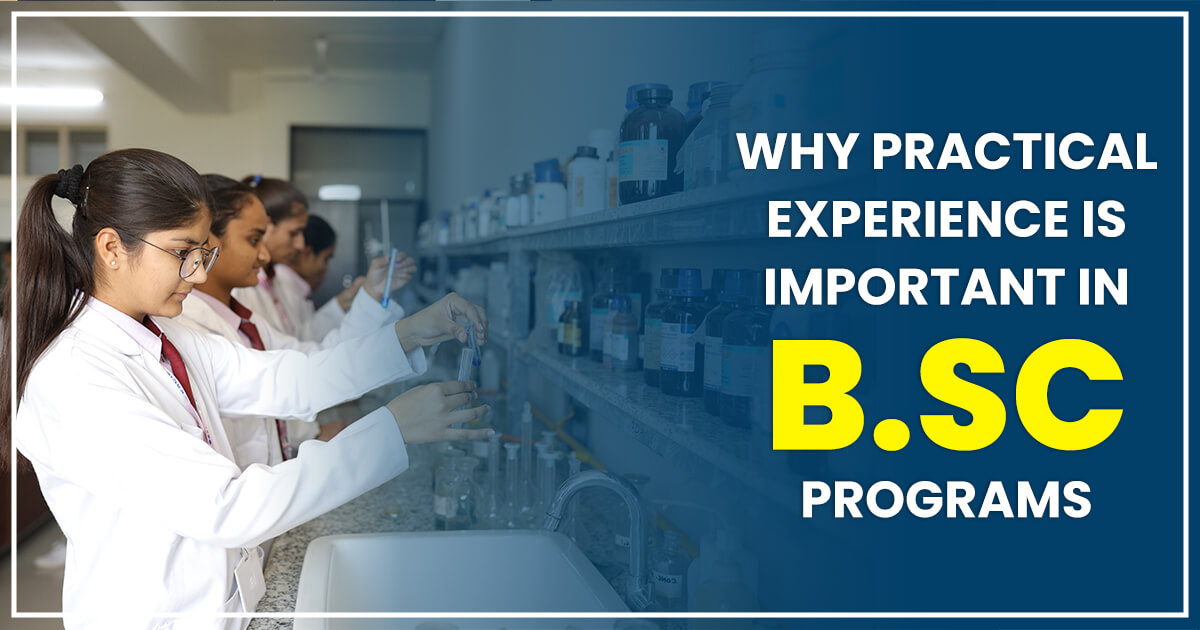
In today’s competitive world, a Bachelor of Science (B.Sc) degree is not just about theoretical knowledge. Employers are increasingly looking for graduates who have hands-on experience and practical skills that align with industry demands. This makes practical learning a cornerstone of any successful B.Sc program.
Importance of Practical Learning in B.Sc
Practical learning bridges the gap between theoretical concepts and real-world applications. It allows students to:
- Understand Concepts Better: Practical experiments and projects enhance comprehension of complex scientific principles.
- Build Problem-Solving Skills: Facing real-world scenarios equips students to tackle challenges efficiently.
- Develop Industry-Relevant Skills: Practical exposure ensures students are job-ready with skills directly applicable to their chosen careers.
Benefits of B.Sc Programs with Practical Training
B.Sc programs that prioritize hands-on experience offer several advantages:
- Enhanced Learning Outcomes: Practical sessions reinforce theoretical knowledge, making it easier to grasp and retain.
- Improved Employability: Graduates with practical skills stand out in the job market.
- Exposure to Advanced Tools and Techniques: Access to well-equipped labs helps students familiarize themselves with modern technologies.
Hands-on Experience in Science Education
Science education thrives on experimentation. Laboratories, fieldwork, and research projects are integral to building a robust scientific foundation. Activities such as analyzing chemical compounds, developing software solutions, or studying biological specimens give students a deeper understanding of their subjects.
Career Opportunities After B.Sc
A B.Sc degree opens doors to diverse career opportunities. Practical experience gained during the program enhances the chances of securing high-demand roles in:
- Healthcare and Biotechnology: Positions such as lab technicians, research assistants, and quality analysts.
- Information Technology: Careers in software development, data analysis, and IT consultancy.
- Environmental Science: Roles like environmental consultant, conservationist, or ecologist.
- Education: Teaching positions in schools or as lecturers in colleges.
Jobs After B.Sc
Depending on the specialization, B.Sc graduates can explore roles such as:
- Research Scientist
- Lab Technician
- Data Analyst
- Software Developer
- Quality Control Officer
- Environmental Consultant
Why Choose the Best B.Sc College in Jaipur
Choosing the right college is crucial for gaining practical experience. KVGIT College, renowned as the best B.Sc college in Jaipur, offers:
- State-of-the-Art Labs: Equipped with modern tools and technologies.
- Experienced Faculty: Guidance from experts ensures students get the best education.
- Industry Exposure: Regular workshops and internships provide real-world insights.
Private B.Sc Colleges in Jaipur
For students seeking personalized attention and advanced learning resources, private B.Sc colleges in Jaipur are an excellent choice. They offer smaller class sizes, better infrastructure, and tailored programs to meet individual needs.
Conclusion
Practical experience is the backbone of a comprehensive B.Sc education. It enhances learning, boosts employability, and prepares students for rewarding careers. If you’re looking for a program that combines theoretical knowledge with hands-on training, consider enrolling in the best B.Sc colleges in Jaipur, such as KVGIT College. With the right blend of academic and practical learning, you can pave the way for a successful future in science and technology.
